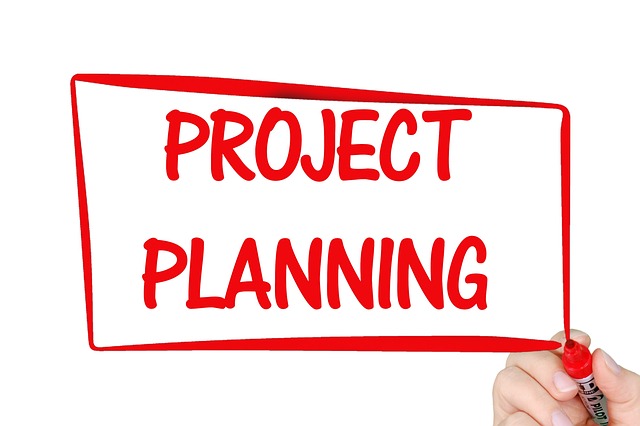Event planning on social media is a pivotal tool for local businesses to boost audience engagement and enhance brand visibility. By using platforms like Facebook, Instagram, and Twitter, these businesses can effectively advertise their events, engage with the community, and create immersive experiences through targeted ads and tailored content that resonates with local demographics. Social media offers real-time interaction for immediate feedback and dynamic adjustments, while its analytics capabilities allow businesses to track engagement metrics, refining their approach based on audience behavior and tastes to ensure events are well-attended and positively impact brand perception and foster customer loyalty. Leveraging specific features like Instagram Stories or LinkedIn events can further enhance the event planning process. Interactive elements such as polls, Q&As, and direct messaging cultivate a community around the events, while encouraging attendees to share their experiences with branded hashtags extends the businesses' reach. This strategic use of social media for event planning is essential for local businesses aiming to engage effectively with their audience in today's competitive digital landscape. Analytics tools guide pre-event promotion and live event management, ensuring seamless execution and valuable insights post-event through comments, direct messages, or surveys. By integrating quantitative analytics with qualitative feedback, businesses maintain a dynamic feedback loop that keeps them relevant and successful in social media event management. This approach underscores the importance of strategic event planning for local businesses in the digital age.
Navigating the digital landscape, local businesses can harness the power of social media to orchestrate captivating events. This article delves into the nuances of social media event planning, offering insights on leveraging platforms effectively, crafting engaging online experiences, and evaluating success through analytics and feedback. Discover how to elevate your local business’s virtual presence and make every digital event a resounding triumph.
- Leveraging Social Media Platforms for Effective Local Business Event Planning
- Strategies for Coordinating Engaging and Interactive Online Events
- Measuring Success: Analytics and Feedback in Social Media Event Management for Local Businesses
Leveraging Social Media Platforms for Effective Local Business Event Planning

In the realm of local business marketing, event planning on social media platforms has become a pivotal strategy to engage with audiences and drive brand growth. Local businesses can harness the power of these digital arenas to not only announce events but also to create immersive experiences that resonate with their community. By utilizing targeted ads and organic content on Facebook, Instagram, and Twitter, businesses can fine-tune their outreach to local demographics, ensuring event relevance and higher attendance rates. These platforms allow for real-time interaction, providing a feedback loop that can inform on-the-go adjustments to the event planning process. Moreover, leveraging social media’s analytics tools, businesses can track engagement metrics, refining their approach to better align with audience preferences and behaviors. This data-driven method ensures that events are not only well-attended but also contribute positively to brand perception and customer loyalty.
To further maximize the impact of social media event planning, local businesses should explore platform-specific features such as Instagram Stories for visual storytelling or LinkedIn events for professional networking. Engaging with followers through polls, Q&As, and direct messaging fosters a sense of community and anticipation for the event. By creating shareable content and encouraging attendees to post their experiences using branded hashtags, local businesses can amplify their reach beyond the immediate audience, tapping into broader social media networks. This cross-promotion not only enhances visibility but also reinforces brand presence in the local market, making event planning for local businesses on social media an indispensable tool for modern marketing strategies.
Strategies for Coordinating Engaging and Interactive Online Events

In an era where digital presence is paramount, local businesses can harness the power of social media to coordinate engaging and interactive online events that resonate with their audience. A strategic approach to event planning on these platforms involves meticulous preparation, creative content development, and real-time engagement techniques. Firstly, businesses should identify their target demographic and tailor the event’s format and content to suit their interests and behaviors. Utilizing analytics tools provided by social media platforms can inform the best times to post and the types of content that drive the most interaction.
Moreover, leveraging a mix of live streaming, polls, Q&A sessions, and interactive games can transform a digital event into a dynamic experience. Pre-event promotion through targeted ads, influencer partnerships, and teaser content can generate buzz and anticipation. On the day of the event, businesses should ensure they have a responsive team ready to manage the live feed, engage with comments in real-time, and troubleshoot any technical issues swiftly. By incorporating user-generated content and encouraging attendees to share their experiences, local businesses can amplify their reach and create a sense of community. These strategies not only facilitate meaningful connections between the brand and its audience but also position the event as a valuable touchpoint in the customer journey for local businesses.
Measuring Success: Analytics and Feedback in Social Media Event Management for Local Businesses

In the realm of digital marketing, event planning for local businesses on social media has become a pivotal strategy to engage with audiences and drive brand growth. Measuring the success of these events is crucial for understanding their impact and optimizing future initiatives. Analytics play a vital role in this process, offering insights into metrics such as attendee demographics, engagement rates, and content performance. By leveraging tools like Facebook Events or Instagram Live, local businesses can track RSVPs, viewer interaction, and real-time feedback, which are indicators of event appeal and effectiveness. These analytics enable businesses to tailor their events to the preferences of their target audience, ensuring higher engagement levels.
Moreover, feedback is an integral component of successful social media event management for local businesses. Engaging with attendees during and after the event through comments, direct messages, or surveys allows for immediate insights into their experiences. This feedback can highlight what worked well and what needs improvement, providing actionable data to enhance future events. Local businesses must not only focus on the number of attendees but also on the quality of their interaction with the brand. By analyzing both quantitative data from analytics platforms and qualitative feedback from participants, local businesses can refine their event planning strategies, leading to more successful and impactful social media events over time. This feedback loop is essential for maintaining a pulse on audience sentiment and staying relevant in a rapidly evolving digital landscape.
Effective management of social media events serves as a cornerstone for local businesses aiming to enhance their digital presence and engage with their audience. This article has delved into the nuances of leveraging popular platforms, crafting engaging and interactive online experiences, and evaluating success through analytics and feedback. By implementing strategic approaches outlined in ‘Leveraging Social Media Platforms for Effective Local Business Event Planning’ and ‘Strategies for Coordinating Engaging and Interactive Online Events,’ businesses can foster meaningful connections and amplify their reach. The concluding section, ‘Measuring Success: Analytics and Feedback in Social Media Event Management for Local Businesses,’ emphasizes the importance of data-driven insights to refine future event planning efforts. Local businesses are encouraged to embrace these strategies to build a robust online events framework that not only attracts participants but also translates into tangible benefits, underscoring the value of social media as an indispensable tool in the realm of event planning for local businesses.
